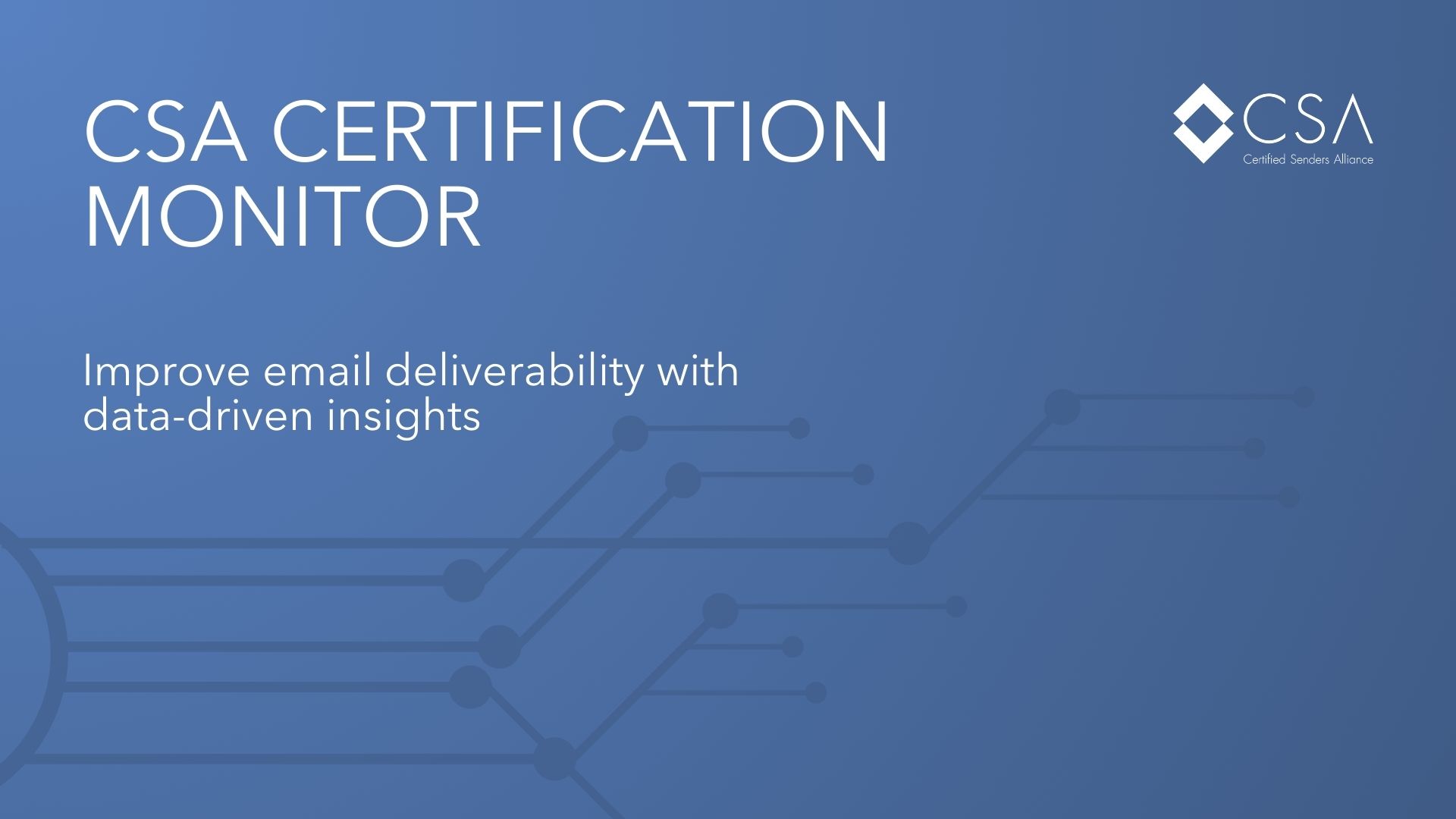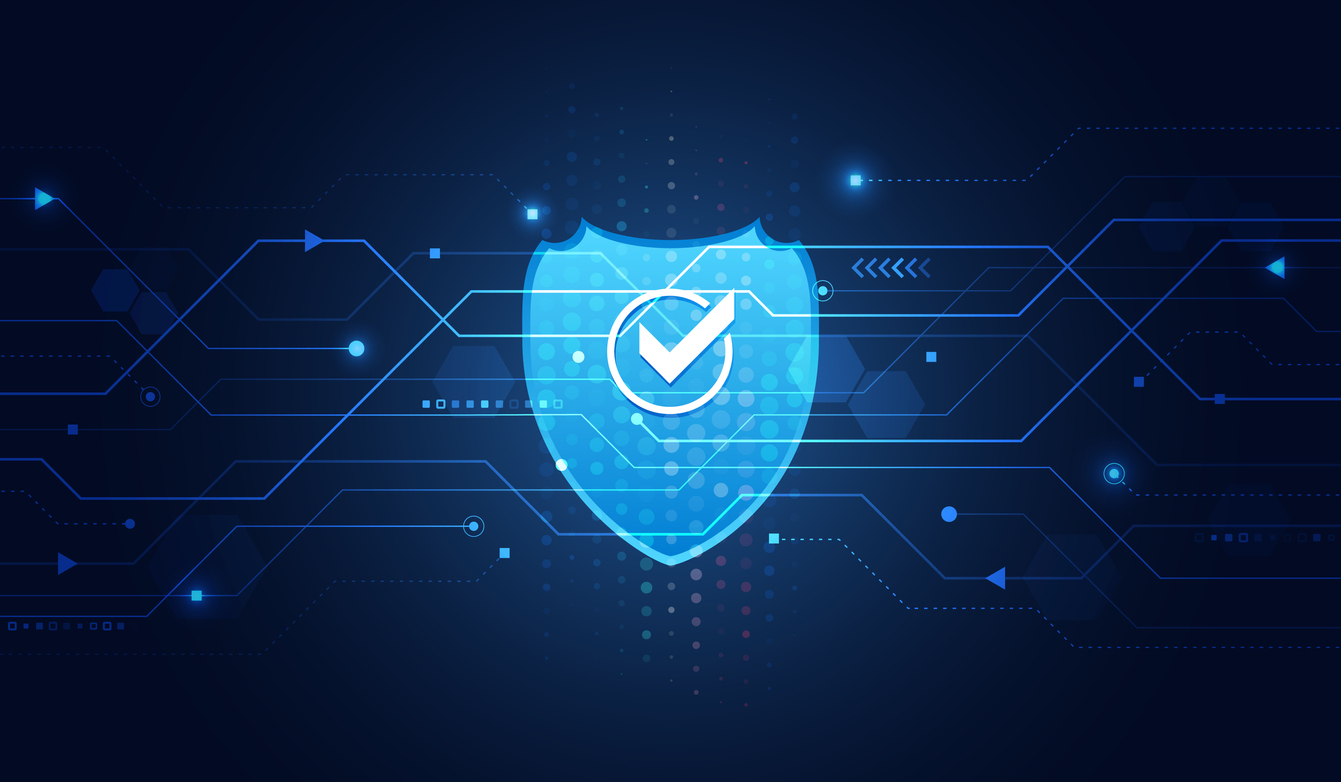
Email Authentication in the Financial Sector
Protection Against Cyber Threats and Ensuring Inbox Delivery: In today’s fast-paced and digitalised world, communication security is paramount. For many companies, email is a central […]

Protection Against Cyber Threats and Ensuring Inbox Delivery: In today’s fast-paced and digitalised world, communication security is paramount. For many companies, email is a central […]

The Certified Senders Alliance is a service of the eco Association of the Internet Industry, in cooperation with the German Dialogue Marketing Association (DDV). Since […]

The CSA Certification Monitor is a self-service tool for certified Senders to monitor deliverability and maintain their certification status. CSA Senders gain access to valuable […]

According to item 2.13 of the CSA criteria, an email sender must have sole control over the outbound email servers/hosts. In the new version of […]

Everyone knows it, but not everyone has it: The legal notice in a newsletter! A missing or wrong legal notice be very costly. Time and […]

Due to a recent increase in questions about this issue, we would like to shed some light on advertising so-called “secondary lotteries”, a type of […]

What companies now have to consider when communicating by email with their customers Shops have closed, restaurants too, hotels are empty – the Corona pandemic […]

A feedback loop is a technical service provided by mailbox providers that reports back spam clicks from email recipients to the sender. This function is […]

This document deals with the encrypted transport of messages between two email servers. Encryption during transport is crucial for a basic level of security for […]

A good reputation, relevant content, and consistent list hygiene are the basis Resolutions belong to the New Year like fireworks and cava, but most of […]
Protection Against Cyber Threats and Ensuring Inbox Delivery: In today’s fast-paced and digitalised world, communication security is paramount. For many companies, email is a central means of communication in informing customers, staying in contact with them, and managing business processes – including in the financial sector. In the financial sector in particular – such as in banks and insurance companies – sending commercial emails carries significant risks, both for the company and its customers. The particularly sensitive customer data makes these institutions prime targets for sophisticated email phishing attacks by cybercriminals.
The Certified Senders Alliance is a service of the eco Association of the Internet Industry, in cooperation with the German Dialogue Marketing Association (DDV). Since its foundation in 2004, the CSA has acted as a neutral interface between mailbox providers and senders of commercial emails. The goal is to enhance the quality of commercial emails such as newsletters, invoices and order confirmations, while protecting email recipients. To achieve this goal, the CSA develops and establishes quality standards for commercial emailing, thereby actively contributing to the protection of users and strengthening the email communication channel.
The CSA Certification Monitor is a self-service tool for certified Senders to monitor deliverability and maintain their certification status. CSA Senders gain access to valuable mailbox and security provider data, providing a unique advantage.
According to item 2.13 of the CSA criteria, an email sender must have sole control over the outbound email servers/hosts. In the new version of the CSA criteria which apply from 2022, Certified Senders must also prove this using a unique token for each host – the CSA Host Verification.
Due to a recent increase in questions about this issue, we would like to shed some light on advertising so-called “secondary lotteries”, a type of unlicensed lottery. This type of lotteries offer bets on the outcome of regular (“primary”) lotteries, sometimes implying that they are selling real participation in said lotteries. As these types of “secondary” lotteries (as well as any unlicensed gambling service like online casinos) are illegal in many European Countries, advertising them is also considered illegal (for Germany, see Sections 4 and 5 of the Interstate Treaty on Gambling, GlüStV). Moreover, depending on the jurisdiction, this might also have criminal consequences, as participating in illegal gambling can be considered a criminal offence and, thus, advertising it might be considered instigating a crime. Lastly, this type of content might also break youth protection laws in some countries. Hence, advertising illegal gambling services also violates the CSA Criteria as it constitutes unlawful email content (Section 4.1). CSA certified senders are therefore strongly advised to raise awareness with their customers about this issue. Please note that, of course, not all advertising for lotteries is illegal – e.g. in Germany, legal and licensed lotteries can quite easily be identified via public information such as this list by the State Gambling Supervisory Authorities (https://innen.hessen.de/sites/default/files/media/hmdis/white_list.pdf).
A feedback loop is a technical service provided by mailbox providers that reports back spam clicks from email recipients to the sender. This function is used when a recipient clicks on the “spam button” in the interface of his or her email account to complain about receiving an email from the mailbox provider.
This document deals with the encrypted transport of messages between two email servers. Encryption during transport is crucial for a basic level of security for the exchange of messages.The exchange of messages between an email client and a server or the end-to-end encryption of messages are not covered in this article. If the aim is to create a secure overall system, these aspects should be considered in addition to the recommendations in this article.